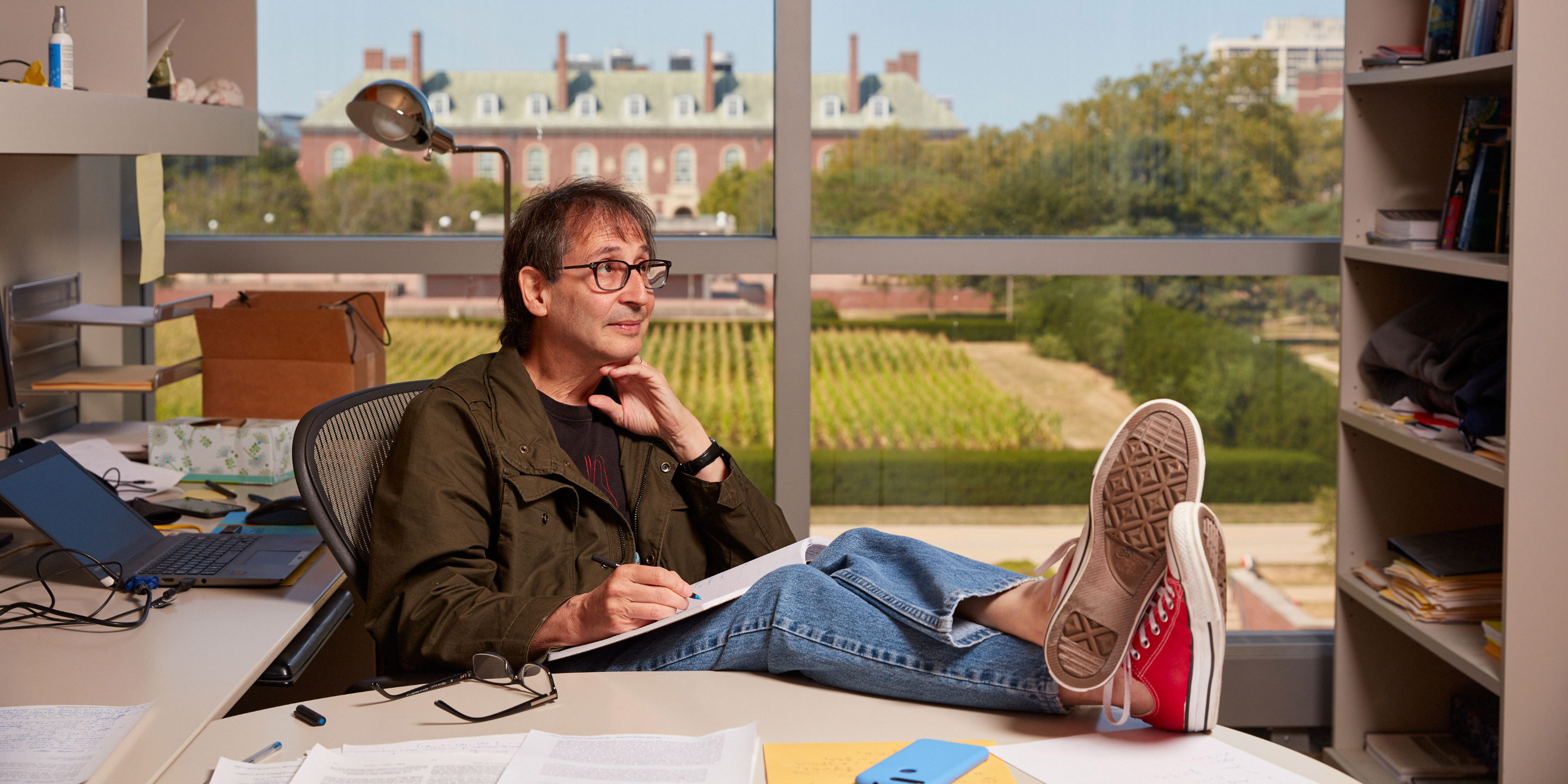Nigel Goldenfeld retires from the University of Illinois
Swanlund Endowed Chair and Center for Advanced Study Professor in Physics Nigel Goldenfeld (BCXT leader/GNDP) will be closing the chapter on his Illinois career and moving on to the University of California, San Diego (UCSD) this month. There, Goldenfeld will hold the Chancellor’s Distinguished Professorship of Physics where he will continue his work on biological complexity, evolution, ecology and condensed matter theory.

Goldenfeld received his doctorate in physics from the University of Cambridge in 1982. He then went on to complete a postdoctoral fellowship at the Institute for Theoretical Physics at the University of California, Santa Barbara before joining the Illinois physics department, where he was a faculty member for 36 years. Goldenfeld’s work primarily lies in condensed matter physics and emergent and collective phenomena, including how patterns evolve over time in living systems. Within the IGB community, Goldenfeld served as a founding member of the IGB and leader of the Biocomplexity theme (BCXT), established in 2005.
“Biocomplexity captures the essence and wonder of biology and is, fittingly, an evolving field,” said Goldenfeld. “It allowed BCXT to exercise considerable discretion in its scientific direction, generating multiple spin-offs and the flexibility to do the most exciting and fundable research we could conceive.”
Under Goldenfeld’s leadership, bold, new avenues and long-standing unanswered questions in biology were explored, such as the fundamental principles of life and the possibility of life existing elsewhere in the universe. From the BCXT theme emerged subsequent research themes and the NASA Astrobiology Institute for Universal Biology for which Goldenfeld served as director.
“Nigel has been a pillar of the IGB since its inception, with his amazing creativity and penchant for catalyzing successful multidisciplinary collaborations,” said entomology professor and IGB Director Gene Robinson (GNDP). “He has had a huge impact here and we wish him the very best.”
Goldenfeld had many productive collaborations with fellow IGB members, including a collaboration with professor of geology and microbiology Bruce Fouke (BCXT) that involved looking at the emergence of life on ancient earth and kidney stone formation in the human body.
“Nigel is a true visionary and absolutely brilliant thinker whose insights consistently defined the cutting edge of science, tackling the most challenging questions facing global science and society,” said Fouke. “We all sincerely thank Nigel for his leadership and profoundly important contributions at Illinois and look forward to learning of the many successes that await Nigel and his family at San Diego.”
One notable collaboration involved renowned scientist Carl Woese, who revolutionized the field of microbiology. Goldenfeld shared a close friendship with Carl Woese and also benefited from Woese’s mentorship early on. Together with Woese, Goldenfeld tackled grand questions about the universality of life. Work done by Woese, Goldenfeld, and Goldenfeld’s student, Kalin Vestigian, led to evidence that the genetic code evolved and to the discovery of a biological mechanism for this evolution.
During his tenure at the University of Illinois Urbana-Champaign, Goldenfeld received numerous honors, including being named an Alfred P. Sloan Foundation Fellow, a UIUC University Scholar, a Fellow of the American Physical Society, a Fellow of the American Academy of Arts and Sciences, a member of the U.S. National Academy of Sciences, and the recipient of the 2020 American Physical Society’s Leo P. Kadanoff Prize, in part for “profound contributions to the fields of dynamical pattern formation, superconductivity, and fluid turbulence, together with creative developments and exposition of the theory of the renormalization group.”
Goldenfeld, along with Bliss Faculty Scholar and professor of bioengineering and physics Sergei Maslov (BCXT/CABBI), modeled the COVID-19 pandemic in its early stages, which was pivotal to Governor J.B. Pritzker’s ultimate decision to issue a stay-at-home order for the state of Illinois. Working alongside civil and environmental engineering professor Ahmed Elbanna, Goldenfeld helped develop and run the SHIELD program on campus, which consists of a comprehensive testing, tracing and monitoring infrastructure supported by epidemiological modeling and data analytics. In recognition for his efforts in modeling the spread of COVID-19, Goldenfeld was recently honored with the Presidential Medallion, the highest honor bestowed by University of Illinois President Tim Killeen.
“The IGB as a whole is most successful when it is giving the opportunity for ambitious scientists to not stay in their lane,” said Goldenfeld. “Branching out of your comfort zone, with other scientists and domain experts to help you, automatically generates new frontiers of science and is what I regard as the most rewarding research experience I have had. I wish the Biocomplexity Theme and its creative membership continued success in finding new transdisciplinary avenues to explore in the future.”
